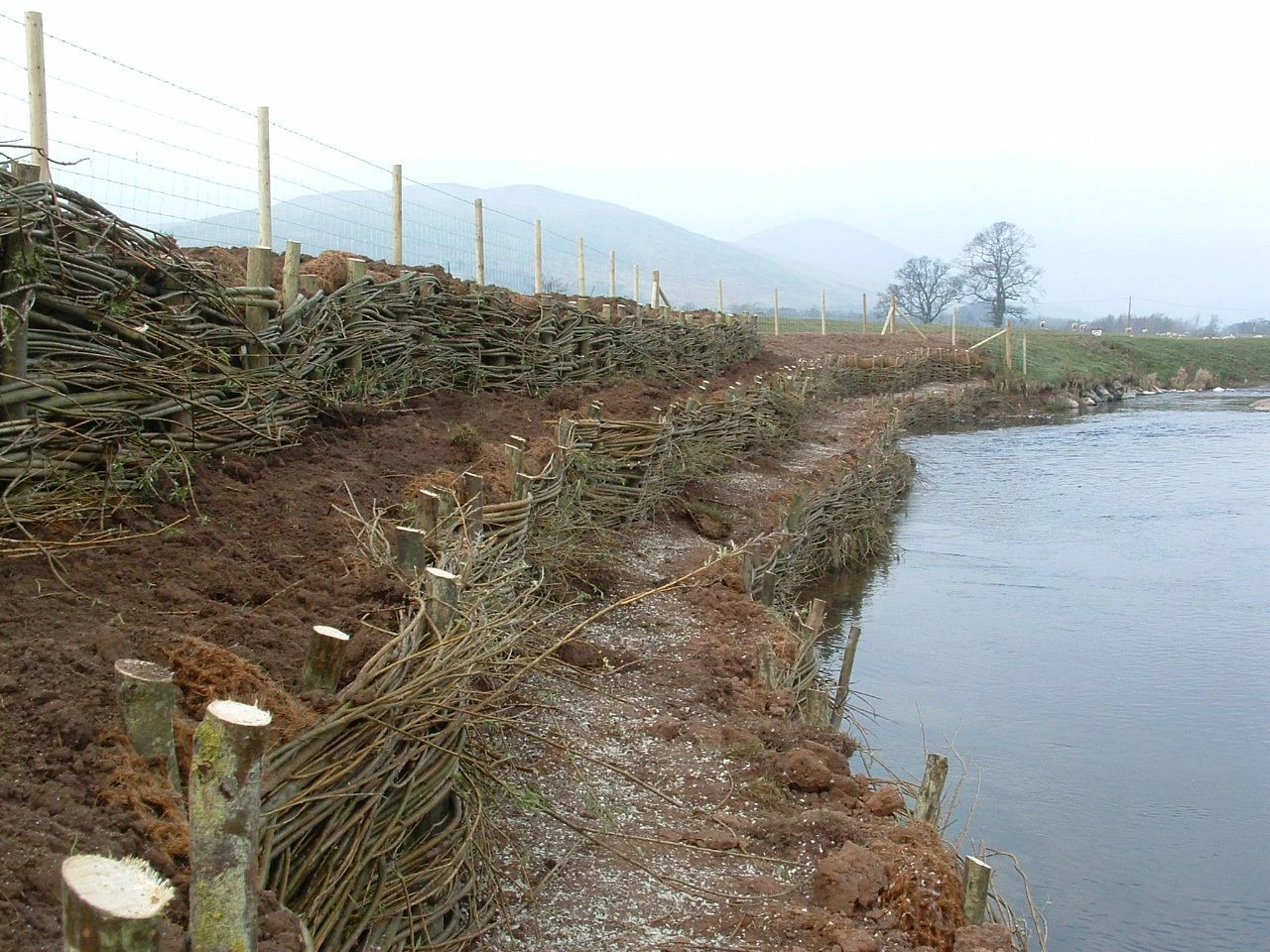
Partner Article
Boosting our banksides with willow
Consultancy offers free help to developers
The power of our rivers has been only too apparent over recent years with a number of our local communities having been devastated by floods across the North East. As well as causing flooding, riverbank erosion can be a real problem, especially where roads, buildings or vital infrastructure lie close by. Over the past two years EcoNorth (Northumberland Wildlife Trust’s consultancy service) has been implementing sustainable erosion control on selected sites through the planning of willow spiling. Willow spiling is a traditional form of river bank protection which involves live willow rods being woven around live willow steaks and then driven in to river banks. As the woven fences are very much alive, it means that within months, the roots and shoots start to grow and bind the soil and stabilise the bank in a very environmentally friendly way. As well as providing erosion control recent research carried out on behalf of EcoNorth has shown that the willow really boosts local wildlife providing habitat for spiders, beetles and other creepy-crawlies which birds and mammals feed on. Additionally, it has been shown that once mature the willow allows a great diversity of other plants to thrive further promoting nature conservation. EcoNorth consultants have carried out willow spiling work on a number of sites in Northumberland and over the coming winter months will be willow spiling along the banks of the Rivers Nent, Pont, Blyth and Tritlington Burn and along the banks of the River Aln on behalf of the National Grid. Copies of the free Boosting Biodiversity with Willow leaflet can be obtained via enquiries@econorth.co.uk
This was posted in Bdaily's Members' News section by Sue Bishop .
Enjoy the read? Get Bdaily delivered.
Sign up to receive our daily bulletin, sent to your inbox, for free.








 We must make it easier to hire young people
We must make it easier to hire young people
 Why community-based care is key to NHS' future
Why community-based care is key to NHS' future
 Culture, confidence and creativity in the North East
Culture, confidence and creativity in the North East
 Putting in the groundwork to boost skills
Putting in the groundwork to boost skills
 £100,000 milestone drives forward STEM work
£100,000 milestone drives forward STEM work
 Restoring confidence for the economic road ahead
Restoring confidence for the economic road ahead
 Ready to scale? Buy-and-build offers opportunity
Ready to scale? Buy-and-build offers opportunity
 When will our regional economy grow?
When will our regional economy grow?
 Creating a thriving North East construction sector
Creating a thriving North East construction sector
 Why investors are still backing the North East
Why investors are still backing the North East
 Time to stop risking Britain’s family businesses
Time to stop risking Britain’s family businesses
 A year of growth, collaboration and impact
A year of growth, collaboration and impact